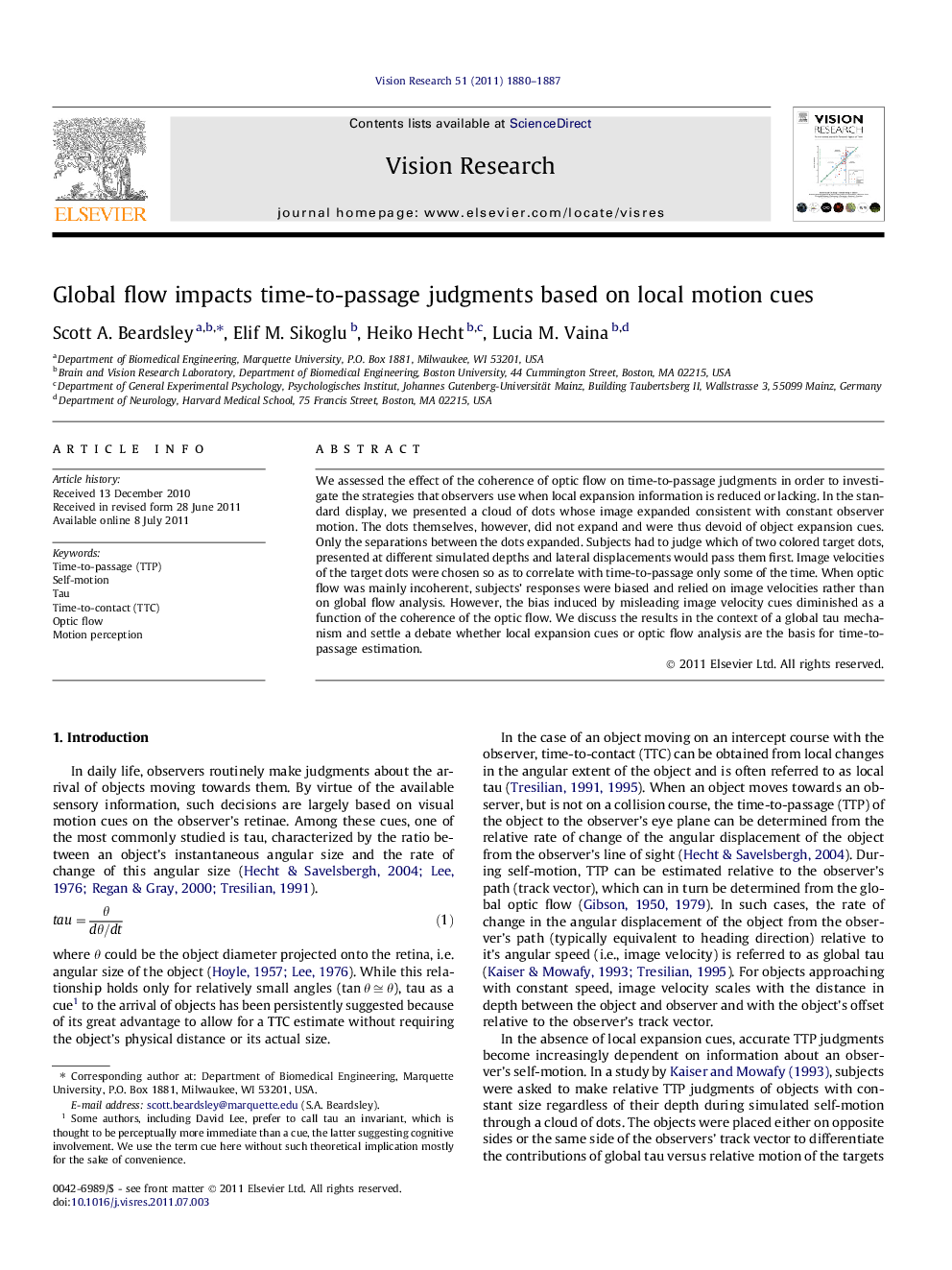| کد مقاله | کد نشریه | سال انتشار | مقاله انگلیسی | نسخه تمام متن |
|---|---|---|---|---|
| 4034105 | 1263427 | 2011 | 8 صفحه PDF | دانلود رایگان |

We assessed the effect of the coherence of optic flow on time-to-passage judgments in order to investigate the strategies that observers use when local expansion information is reduced or lacking. In the standard display, we presented a cloud of dots whose image expanded consistent with constant observer motion. The dots themselves, however, did not expand and were thus devoid of object expansion cues. Only the separations between the dots expanded. Subjects had to judge which of two colored target dots, presented at different simulated depths and lateral displacements would pass them first. Image velocities of the target dots were chosen so as to correlate with time-to-passage only some of the time. When optic flow was mainly incoherent, subjects’ responses were biased and relied on image velocities rather than on global flow analysis. However, the bias induced by misleading image velocity cues diminished as a function of the coherence of the optic flow. We discuss the results in the context of a global tau mechanism and settle a debate whether local expansion cues or optic flow analysis are the basis for time-to-passage estimation.
► Observers use optic flow for TTP judgments but not always to their advantage.
► Image velocity used as main cue for TTP judgments when local tau is not available.
► Human observers do not exclusively rely on 2D image velocities.
► Observers utilize global tau when optic flow information is available.
► Global optic flow supplements image velocity when 2D info appears unreliable.
Journal: Vision Research - Volume 51, Issue 16, 15 August 2011, Pages 1880–1887